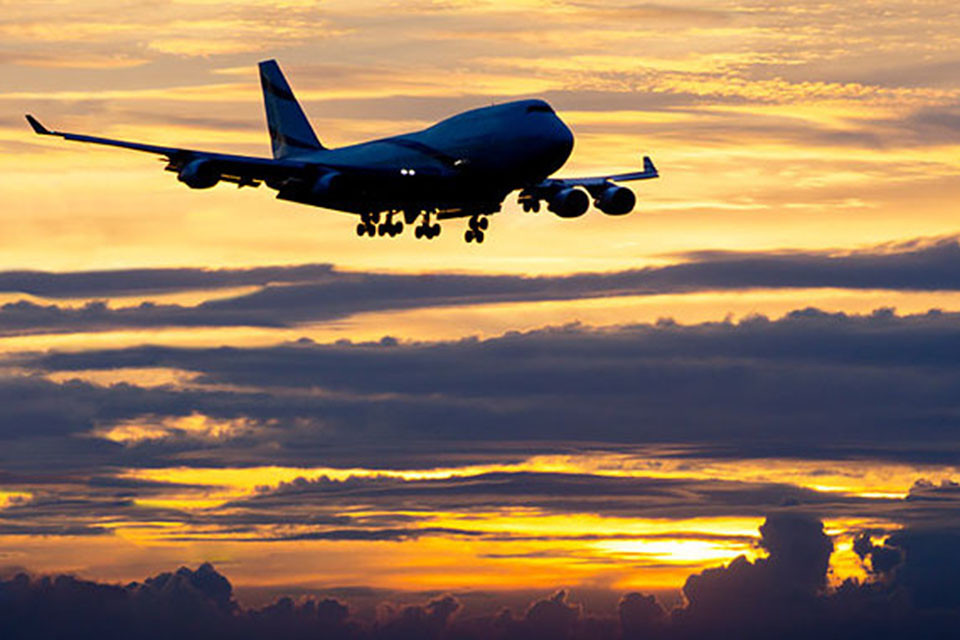Oceania Cruises of Miami, a luxury culinary cruise company and a division within Norwegian Cruise Lines that specializes in luxury culinary cruises, broke the record for single-day bookings on 16 September. The introduction of the company’s newest ship, Vista (which is due to carry its first passengers by April 2023), was the driving force behind this record. In one day, nearly half of the inventory for Vista’s first season was sold. This was a new cash booking, with 30% coming from first-time customers.
It isn’t easy to know what it means for Australia. Cruise Lines International Association reports that 1.34 million Australians cruised in 2018. This is one of the highest numbers in the world based on population. However, international travel remains off-limits.
The Ruby Princess docked at Sydney, Australia in March 2020. This was the worst of the many outbreaks that occurred on cruise ships during the first weeks of the pandemic.
No foreign flagged cruise ships are allowed to enter Australian water since 27 March 2020. They remain banned at least until 17 December. There is no way to know if the ban will be lifted and there’s also no plan published for how this industry could reopen.
James Kavanagh is the managing director of Flight Centre Travel Group in Australia. He says that Australians are increasingly interested in sailing, with an increase of about 40% per month since June.
CLIA has developed extensive new health protocols but has not mandated mandatory vaccinations for guests and crew on its member ships. It would seem that this is contrary to the advice of epidemiologists.
Catherine Bennett, epidemiologist at Deakin University says that it is “absolutely sensible” to require passengers and crew to be vaccinated.
The traditional cruise passenger cohort is older and at greater risk for serious Covid diseases due to other underlying conditions, but thankfully has an increased vaccination uptake.
“Studies in the UK show that unvaccinated individuals are three times as likely to contract an infection. If people are vaccinated and have a breakthrough illness, they are 95% less likely than unvaccinated individuals to develop serious illnesses.
“Vaccines reduce the likelihood that someone will need acute care beyond the capabilities of the ship.” Rapid testing is important, especially for cruise ships that have visited shores, but not enough. The key is to minimise the risk while maximising preventative measures. They also need to improve the air filtration system, launch with a lower passenger density and make sure they have enough capacity to handle people who are going downhill quickly.
“When cruising returns, the industry does not want a Covid epidemic on the first voyage. She says that soon we will reach a point where the vaccination rate is high enough to not have to worry about mandating it. “But in the meantime, there are high levels of Covid wherever ships visit around the globe.”
Many cruise lines have vaccine mandates. However, they may vary depending on the port, destination, and even specific sailings. Some companies make a distinction between cruises that are vaccinated or unvaccinated. Unvaccinated passengers may be required to purchase travel insurance. Determining what is meant by being fully vaccinated varies from country to country .
When there is a lot of repressed desire to travel, it is mixed with excitement and uncertainty. Covid has diminished the appeal of cruises for some older people, but others, like self-described ‘cruisaholics’ Bryan and Kay Tolra from Perth in their seventies, are eager to return to the seas. They have taken 64 cruises.
We love cruising, because it’s safe and the food is great. You also get to travel around the globe and meet wonderful people. The food is amazing, it’s safe and you can drink without driving. And the crew are great. Bryan Tolra, a travel agent from the United States, says that they have already booked a World Cruise in 2023.
“I am confident that the cruise industry will continue to do all it can to keep passengers safe after Covid. I think that requiring both crew and passengers to get vaccinated is a great idea. Both of us are double vaccinated. Covid has affected our choice of destination. “There are places that we would never go near anymore.”
Sally Wiseman of the Gold Coast, along with her husband and their three children (12, nine, and 7 years old) are eager to get back on the water. She says, “the sooner the better.” The whole family is eager to go on a cruise. It’s great to not have to worry about cooking, packing, unpacking, or even packing. We can relax, and the children have plenty to do.
She says, “During the lockdown we discussed what family memories we would like to create. It was all about glaciers, bears and whales so we are planning a cruise through Canada and Alaska for 2023.” “I am more worried about the logistics of flying than my own safety. We are double-vaccinated and the 12-year old is scheduled for his vaccination, so we don’t think we will get sick. “It’s important that the crew is vaccinated, and they wear masks.”
Neil Stollznow, director of sales for SMP Survey Software is responsible for conducting regular surveys to assess the health of brands in the travel industry. In its July 2021 ocean cruising survey, 26% of respondents said they planned to cruise within the next five-years.
He says that there is no evidence to suggest that the high-end cruise market has a higher demand than low-cost domestic markets. All of them are doing well. The travel industry’s most successful marketing is in the cruise sector. The tourism industry is so fragmented that it doesn’t offer a cohesive experience.
Cruise clients are loyal and expect that the cruise companies will operate in a Covid safe manner. Cruise lovers were more forgiving when Norovirus spread through ships than other consumers. “Ocean cruising is a Teflon-like market.”
It is important that the cruise industry establishes a post-Covid record of safety to ease public and regulatory concerns.
Bennett explains epidemiologists’ understanding of risk.
“We’re always concerned about activities that bring people together who wouldn’t usually mix. If one person becomes ill on a cruise ship, particularly a large ship, the viral outbreak will spread quickly because of the ideal conditions that microbes thrive in.
In the case of Covid if there are too few vaccines, then transmission is quicker and more people get critically ill. If we cannot control Covid in Sydney with lockdowns or isolation, the situation will be worse on ships.
She says that cruise ship operations are now safer than ever before. “Will it be enough?”










